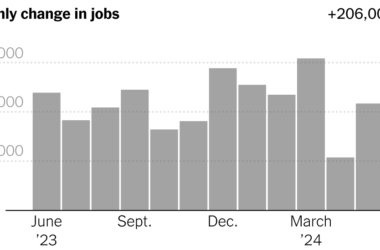The Federal Communications Commission has recently established new rules to put an end to discrimination in internet services accessibility. Regulators consider this move as the first major digital civil rights policy in the United States.
These regulations empower the agency to investigate instances of discrimination by broadband providers against communities based on income, race, ethnicity, and other protected classes.
The rules also address disparities in the investment of services for different neighborhoods and aim to bridge the “digital divide” that leaves many communities without internet access due to regional or socioeconomic inequality.
FCC Chairwoman Jessica Rosenworcel stated that the bipartisan infrastructure legislation passed at the start of the Biden administration mandated the agency to adopt rules addressing digital discrimination.
Rosenworcel emphasized that the digital divide disproportionately affects communities of color, lower-income areas, and rural areas and puts the country at an economic disadvantage. She added that broadband is essential infrastructure for modern life and these rules are a step closer to ensuring everyone has access to the internet.
During the pandemic, poorer, less white neighborhoods received lower investment in broadband infrastructure and offered worse deals for internet service, highlighting the pronounced inequity in access.
The FCC’s new rules aim to streamline the process for reporting discriminatory practices in the provision of digital services, building an official record of discrimination going forward.
The agency is now able to examine whether internet service providers knowingly discriminated in how they built, upgraded, or maintained internet access and determine whether proposed service plans would create a “discriminatory effect” that couldn’t be avoided. It also eases the responsibility of states and localities receiving federal infrastructure funds in addressing discrimination issues.
While the telecommunications industry has opposed the framework, arguing that it would hamper investment in communities, digital advocacy groups have welcomed the new rules and called for possibly reclassifying some aspects of broadband to bring back important oversight powers.
Commissioner Brendan Carr argued that the new policies opened the agency up to potential litigation and would hamper operations by the telecommunications industry, stressing that the rules are about control rather than discrimination.
The FCC is also planning to reimplement net neutrality rules, with President Joe Biden aiming to connect every U.S. household to quality internet service by 2030, regardless of income or identity.
Christopher Ali, a professor of telecommunications at Pennsylvania State University, emphasized the importance of ensuring that communities reap the benefits of these decisions, and community groups and local organizations are expected to play a vital role in reporting discrimination issues.
___
Matt Brown is a member of the AP’s Race and Ethnicity team. Follow him on social media.








